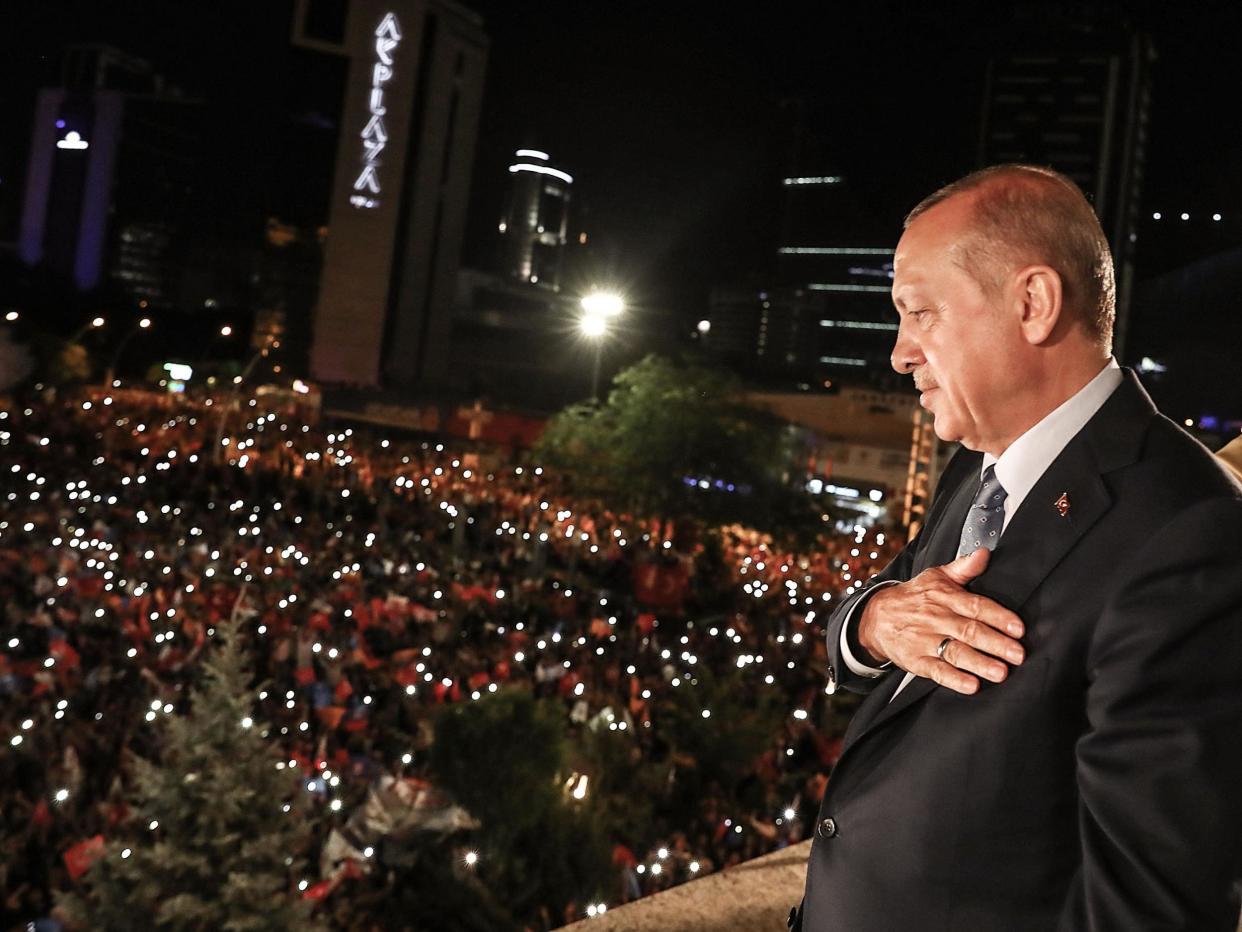Erdogan’s re-election is worrying news for journalists – but his actions are part of a wider trend

The re-election of Recep Erdogan to Turkey’s presidency is bad news for Turkey – and for anyone who cares about press freedom. Under Mr Erdogan’s rule, Turkey has become the biggest jailer of journalists in the world; as a result it has plummeted down world press freedom indices.
It would be wrong to argue – as some of his supporters do – that Mr Erdogan has been forced to clamp down on opposition voices in the media in response to the attempted military coup of 2016. It is plain that he has been seeking to silence critical commentary for much longer. In the 18 months after he was first elected president in 2014, there were more than 1,800 prosecutions against people, including journalists, who were alleged to have insulted him.
In April 2016, three months before the coup, he even sought the prosecution of a TV presenter in Germany who he claimed had offended him. The German law cited by Mr Erdogan was so antiquated that many German lawyers had not heard of it. Shortly afterwards, a Dutch journalist who had been critical of the president, in an article published in the Netherlands, was arrested while on holiday in Turkey.
While it is true that media freedoms have been curtailed more stringently since the attempted uprising, it is hardly a new departure. For Mr Erdogan, dissent is akin to an assault on Turkish national interests. Under the guide of maintaining Turkey’s democracy, he is slowly dismantling the checks and balances that are integral to it. This weekend’s electoral victory, which triggers changes to the constitution approved narrowly in last year’s referendum, will concentrate authority in Mr Erdogan’s hands even further.
Three years ago, The Independent launched its “Voices in Danger” campaign to highlight the threats to journalism that existed around the world. We noted then that in the first half of 2015, 30 journalists had been killed. In its annual analysis for 2017, Reporters Without Borders concluded that the total for last year was 65 – 40 per cent of whom died in the line of duty, while 60 per cent were deliberately killed. A further 54 were held hostage and over 300 were imprisoned.
Holding the powerful to account has always been a risky business – but journalism today seems more perilous than ever. Even putting aside the dangers that are encountered by reporters in the field, journalists also find themselves purposefully targeted by politicians who seek to bolster their own authority by undermining the integrity of critical voices in the media.
In this respect, Mr Erdogan is simply part of a wider trend, which stretches from Vladimir Putin in the east to Donald Trump in the west. These politicians – among many others, including here in Britain – have all understood that the potential power of the media can be neutered not only by direct action against individuals (for instance by imprisoning reporters), but also by asserting loudly and repeatedly that journalists – either per se or at particular publications – do not tell the truth.
The debate about “fake news” began as an expression of concern at the way demonstrably false information was being disseminated – usually via social media – for political reasons, often originating in the shadows. It morphed into a discussion that asked legitimate questions about the extent to which mainstream media outlets report on the basis of established agendas. But ultimately it has been transformed by men like Mr Trump into a conspiracy theory in which valid journalistic endeavour is dismissed as inherently untrustworthy; and usually as an attempt by liberal elites to stifle the will of the people (or at least people who support whichever politician is making the point at that moment).
Mr Trump, in this respect, leads a packed field. He has, like perhaps no western leader before him, managed to undermine journalism simply by his words. After all, he has not jailed journalists (unlike Mr Erdogan); and critical hacks are not likely to find themselves dead in the US (as they might elsewhere). Yet he has made journalists a target of abuse, and journalism a trade to be doubted – if not reviled – in a way that is real and dangerous.
Democracy only functions properly if power can be held up to the light: criticism and dissent is not anathema to the democratic process, but fundamental. Mr Erdogan’s treatment of journalists deserves our attention and our condemnation; but he’s not the only one we should be worried about.

 Yahoo News
Yahoo News 
